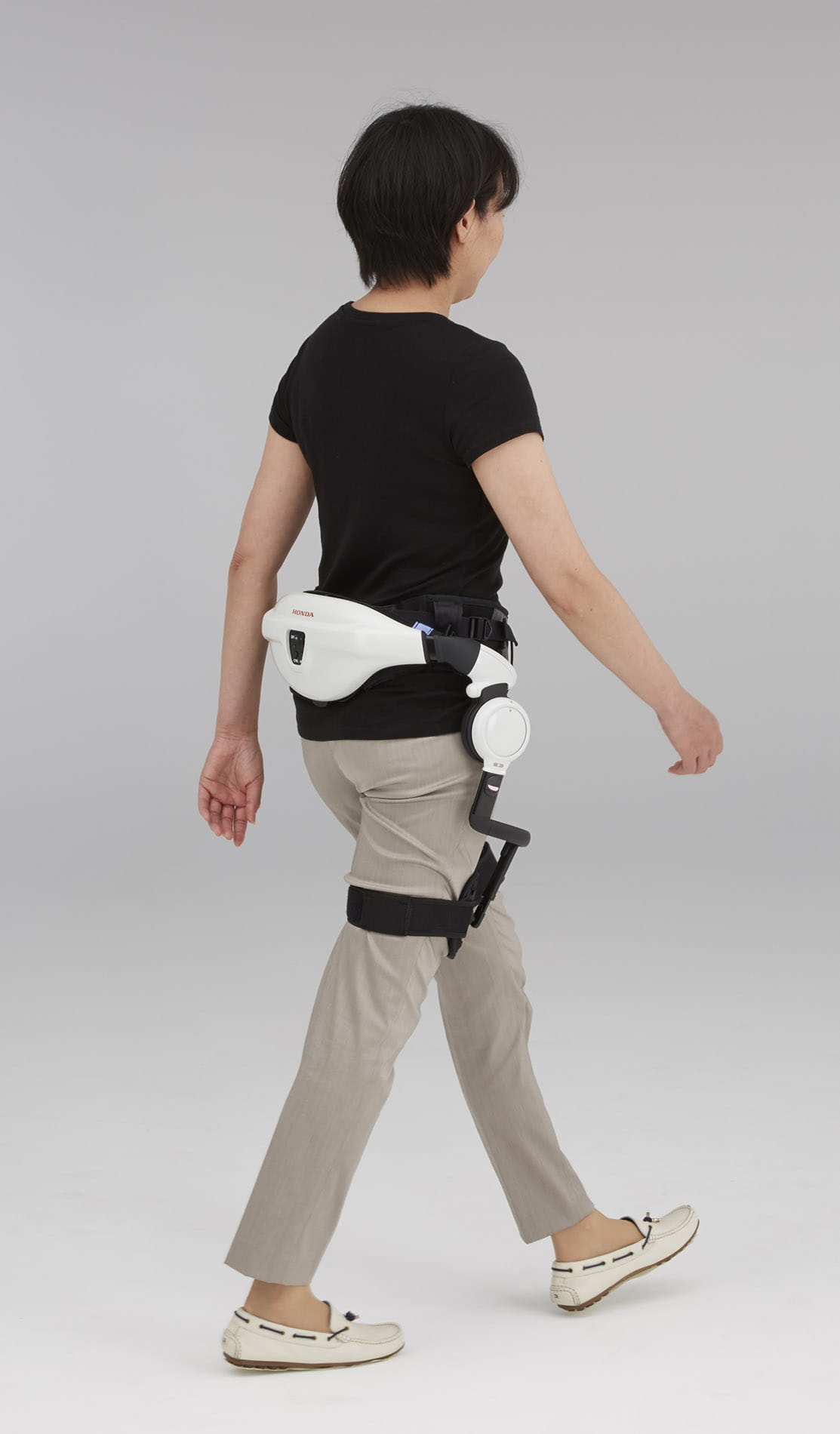 Researchers at The Ohio State University School of Health and Rehabilitation Sciences and Honda R&D Americas, Inc. have been awarded a $270,000 grant by The Michael J. Fox Foundation for Parkinson’s Research (MJFF) to research the safety and potential positive impact the Honda’s Walking Assist Device could have in helping people with Parkinson’s disease (PD).
Researchers at The Ohio State University School of Health and Rehabilitation Sciences and Honda R&D Americas, Inc. have been awarded a $270,000 grant by The Michael J. Fox Foundation for Parkinson’s Research (MJFF) to research the safety and potential positive impact the Honda’s Walking Assist Device could have in helping people with Parkinson’s disease (PD).
Drs. Anne Kloos and Deb Kegelmeyer from Ohio State’s School of Health and Rehabilitation Sciences Division of Physical Therapy, will lead the study. The goal of the research will be to understand the long- and short-term impact of mechanical gait assistance on the ease and efficiency of walking in people with Parkinson’s disease.
“People with Parkinson’s disease experience difficulty participating in meaningful activities in their homes and communities due to problems with walking,” said Dr. Anne Kloos. “The study aims to determine whether walking training using the Honda Walking Assist Device can help people with Parkinson’s disease to walk better and be more active in their daily life activities.”
“We have a large body of evidence which suggests that the Honda Walking Assist Device safely and effectively improves the mobility of individuals affected by stroke,” said Kenton Williams, one of the lead research engineers at Honda R&D Americas for the Walking Assist Device development. “We are excited to understand how the device also can help support individuals with other neurological conditions such as PD.”
Jamie Hamilton, PhD, Associate Director at MJFF, said, “Many people with Parkinson’s disease experience gait and balance issues, but there are few treatment options that fully alleviate these challenges. This project has the potential to address this unmet need and improve quality-of-life for Parkinson’s patients.”
The research partners will conduct a randomized controlled trial to study the impact of an eight-week in-home intervention using the Walking Assist Device to improve mobility in people with Parkinson’s disease.
The research will begin in early 2019, coordinated through Ohio State’s School of Health and Rehabilitation Sciences, with results anticipated the following year. The lightweight, robotic device is intended for use by people who can walk, but have gait deficits. Worn orthotically on the user’s waist and legs, it facilitates more efficient and symmetrical walking patterns, enabling the patient to walk faster and farther. Honda is not currently commercializing the product in North America and has not announced plans for the device at this time.